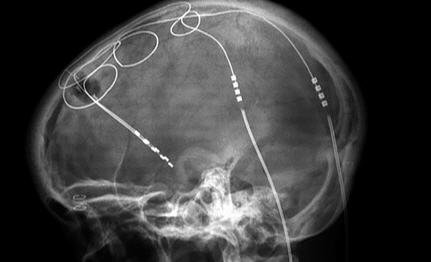

Sociality and Caching
Pinyon jays and Clark’s nutcrackers share habitat in the southwestern U.S., and both rely heavily on thousands of cached pine seeds over the winter. But the two species differ when it comes to their social structures: Pinyon jays are highly social, while Clark’s nutcrackers are more solitary. Researchers investigated how this difference in sociality influences their caching behavior when being observed by a bird of their own kind or a different species.
Read more at my Animal Minds blog: Hiding Seeds? It Depends Who’s Watching.

How Glassfrogs Achieve Transparency
In my latest article for the Science Journal for Kids, I took on a paper in which researchers detailed how glassfrogs turn transparent to avoid detection by predators. It’s all about hiding those red blood cells!
Read the article here: How Do Glassfrogs Become Transparent?

Youth Crisis Stabilization Unit
The Youth Crisis Stabilization Unit (YCSU) is an inpatient psychiatric setting at Nationwide Children’s for children and adolescents experiencing a mental health crisis. Over the last 12 years, the YCSU has grown from a two-bed unit housed within a general emergency department to a 16-bed unit designed specifically with the needs of youths and families in crisis in mind. In a new book chapter, clinicians and researchers from Nationwide Children’s detail why the unit was established, how it has grown and why it is a promising alternative psychiatric intervention to traditional inpatient hospitalization.
Read more here: Evolution of the Youth Crisis Stabilization Unit.

Deep Brain Stimulation for Genetic Movement Disorder
In a new case series, researchers from Nationwide Children’s report using deep brain stimulation (DBS) to help manage tremor due to a genetic movement disorder in two brothers. The report, published in the journal Pediatric Neurology, suggests DBS may be useful in treating medically resistant tremor in pediatric patients with related disorders.
Read more at Pediatrics Nationwide: Deep Brain Stimulation Ameliorates Symptoms of Genetic Movement Disorder.

Social Needs and Postpartum Depression
In a new study, researchers from Nationwide Children’s found a significant relationship between self-reported social needs and postpartum depression symptoms of mothers screened in pediatric primary care clinics. The findings suggest that social needs could be targeted concurrently in future interventions addressing postpartum depression in pediatric settings.
Read the whole story here: Social Needs Associated with Postpartum Depression.
